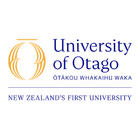Social Anthropology explores the cultural grounding of social life. By studying people who are ‘not like us’ – from whichever group of people it is that ‘we’ as researchers might belong – anthropologists learn about the surprising differences in everyday living around the world.Otago offers a range of interesting and challenging study options within Social Anthropology. Visit our webpage to see our courses in Pacific cultures, friendship, reproduction and kinship, the anthropology of money, rites of passage, death studies, health studies, sex, cultural politics, religion and the supernatural, and anthropological technique and theory.
A Social Anthropology degree provides broad- based training that can lead to a wide range of careers. Students acquire a high level of expertise in sought-after skills. These include problem-solving, analysis of information, research and writing skills, emotional and ethical intelligence, independent thinking, project management, and expertise in audio- visual presentations.Graduates in social anthropology find work in museums, as policy advisors for the government or local bodies, in community development, the police force, and project co-ordination and management for non- governmental organisations such as Volunteer Service Abroad.Other interesting careers include journalism, film and media industries, foreign affairs, international aid, teaching, tourism, working with refugees, disaster relief, management, historic preservation, social impact assessment, environmental management – the list is almost endless.There are also opportunities for pursuing careers specifically in Anthropology, such as working in universities, museums, consultancy, applied research, which require further postgraduate training after finishing the BA.





